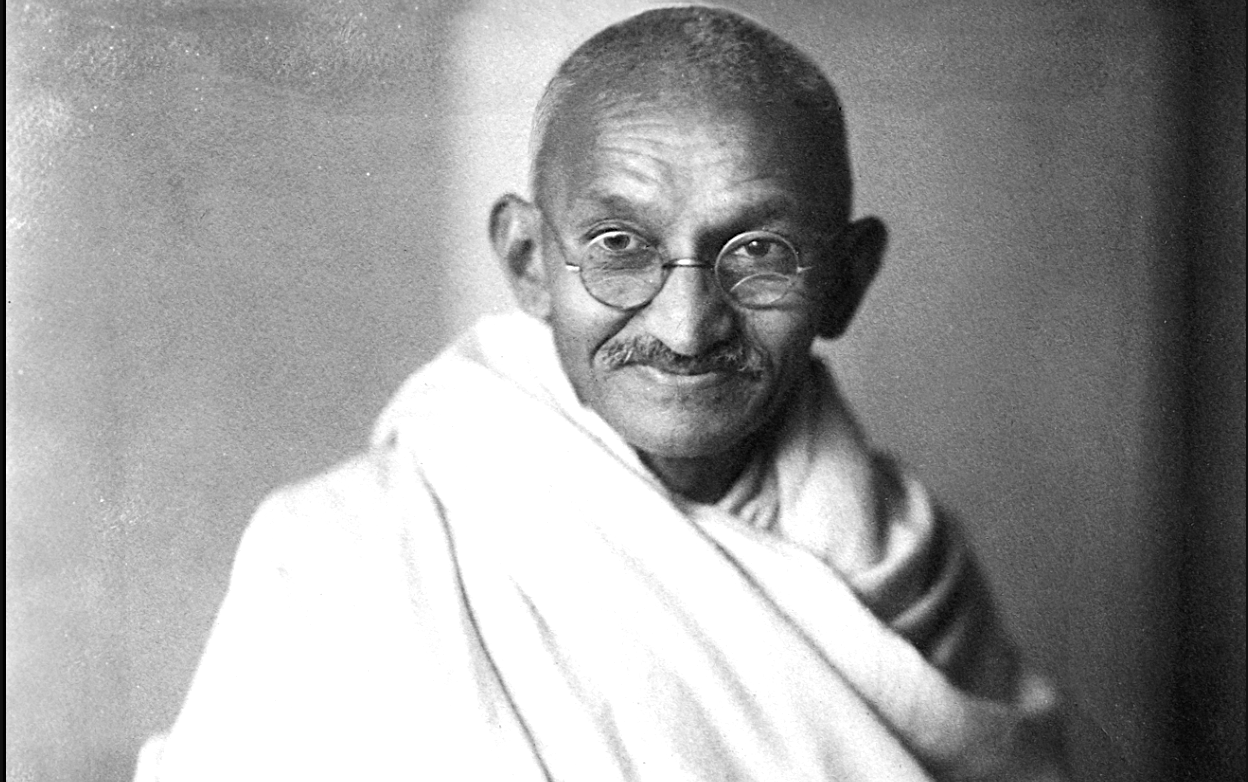
Image via Wikimedia Commons
In 590 AD, Pope Gregory I unveiled a list of the Seven Deadly Sins – lust, gluttony, greed, sloth, wrath, envy and pride – as a way to keep the flock from straying into the thorny fields of ungodliness. These days, though, for all but the most devout, Pope Gregory’s list seems less like a means to moral behavior than a description of cable TV programming.
So instead, let’s look to one of the saints of the 20th century–Mahatma Gandhi. On October 22, 1925, Gandhi published a list he called the Seven Social Sins in his weekly newspaper Young India.
- Politics without principles.
- Wealth without work.
- Pleasure without conscience.
- Knowledge without character.
- Commerce without morality.
- Science without humanity.
- Worship without sacrifice.
The list sprang from a correspondence that Gandhi had with someone only identified as a “fair friend.” He published the list without commentary save for the following line: “Naturally, the friend does not want the readers to know these things merely through the intellect but to know them through the heart so as to avoid them.”
Unlike the Catholic Church’s list, Gandhi’s list is expressly focused on the conduct of the individual in society. Gandhi preached non-violence and interdependence and every single one of these sins are examples of selfishness winning out over the common good.
It’s also a list that, if fully absorbed, will make the folks over at the US Chamber of Commerce and Ayn Rand Institute itch. After all, “Wealth without work,” is a pretty accurate description of America’s 1%. (Investments ain’t work. Ask Thomas Piketty.) “Commerce without morality” sounds a lot like every single oil company out there and “knowledge without character” describes half the hacks on cable news. “Politics without principles” describes the other half.
In 1947, Gandhi gave his fifth grandson, Arun Gandhi, a slip of paper with this same list on it, saying that it contained “the seven blunders that human society commits, and that cause all the violence.” The next day, Arun returned to his home in South Africa. Three months later, Gandhi was shot to death by a Hindu extremist.
Note: An earlier version of this post appeared on our site in 2014.
Related Content:
Albert Einstein Expresses His Admiration for Mahatma Gandhi, in Letter and Audio
Isaac Newton Creates a List of His 57 Sins (Circa 1662)
Mahatma Gandhi Talks (in First Recorded Video)
When Mahatma Gandhi Met Charlie Chaplin (1931)
Hear Gandhi’s Famous Speech on the Existence of God (1931)
Jonathan Crow is a writer and filmmaker whose work has appeared in Yahoo!, The Hollywood Reporter, and other publications,


The Seven Deadly Sins are discounted as “less like a means to moral behavior than a description of cable TV programming.”
Gandhi’s Seven Social sins are praised for pointing out selfish patterns in contemporary society.
Are these lists worthless because we find them everywhere in our society? Or are they not precisely helpful because they (both) diagnose the patterns of “selfishness winning out over the common good” that should be avoided?
The seven deadly sins are also identifying narcissistic actions which damage our relation to others and cause social harm. For example, pride: making exceptions for oneself as of more importance than others; Envy: wishing evil for others who have what we want, instead of being glad for their good; Lust: treating others as merely a means to our own sexual pleasure, instead of seeing our sexuality as a gift to bring joy to those we love, etc.
No need to sneer at one wisdom tradition in order to give honor to another.